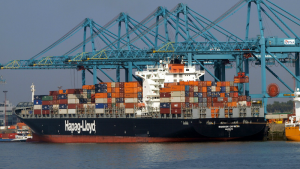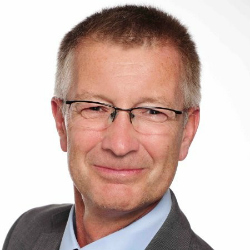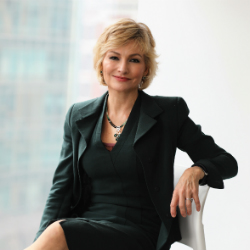
“TradeLens has made significant progress in launching a much-needed transformation in the industry, including its partnership model. Now, with five of the world’s six largest carriers committed to the platform, not to mention many other ecosystem participants, we can collectively accelerate that transformation to provide greater trust, transparency and collaboration across supply chains and help promote global trade” said Martin Gnass, Managing Director Information Technology at Hapag-Lloyd.

The TradeLens ‘family’
TradeLens launched to modernise the world’s supply chain ecosystems. Many of the processes for transporting and trading goods are costly, in part, due to manual and paper-based systems. By replacing these peer-to-peer and often unreliable information exchanges, the TradeLens platform enables participants digitally to connect, share information and collaborate across the shipping supply chain ecosystem.
The shipping industry sees the expansion of digital collaboration as being critical to the evolution of the container shipping industry. Within this context, the TradeLens platform now includes participants representing more than half of the world’s ocean container cargo:
- Hapag-Lloyd (5th largest carrier)
- ONE (the 6th largest carrier)
- CMA CGM the 3rd largest carrier)
- MSC Mediterranean Shipping Company (the 2nd largest)
- APM Maersk (the largest).
The addition of Hapag-Lloyd and ONE will likely drive further adoption of TradeLens. The attraction is customers will have access to carriers in all three leading global vessel sharing alliances. With an already significant presence in Asia, ONE is further strengthening and expanding its coverage through joint cooperation with TradeLens, to meet the demands of the crucial Asia market.
“We believe this innovative approach based on open standards and open governance can benefit the entire industry while ultimately benefitting our customers who rely on the world’s shipping industry to transport global container volume of more than 120 million TEU across international borders each year,” said Noriaki Yamaga, Managing Director, Corporate & Innovation, Ocean Network Express.
The supply chain connection
The addition of more leading carriers to TradeLens will help global supply chain customers expand and explore the benefits of digitisation and deliver new opportunities to the increasing number of TradeLens ecosystem participants across the global supply chain.
Hapag-Lloyd and ONE will each:
- operate a blockchain node
- participate in consensus to validate transactions
- host data
- assume a critical role of acting as Trust Anchors, or validators, for the network.
Both companies will have representatives on the TradeLens Advisory Board, which will include members across the supply chain. Their purpose: to advise on standards for neutrality and openness with members of TradeLens:
- gaining a comprehensive view of their data
- collaborating as cargo moves around the world
- creating a transparent, secured, immutable record of transactions.
The attributes of blockchain technology suits large networks of disparate partners (see also CBN, Walmart, Visa – as examples). Blockchain, by establishing a shared, immutable record of all the transactions that take place within a network, enables permissioned parties access to secured data in real time.
Bridget van Kralingen, Senior Vice President, Global Industries, Clients, Platforms & Blockchain, IBM: “Through improved trust, simplicity and improved insight into provenance, blockchain solutions such as TradeLens are delivering proven value across business processes for our clients and their ecosystems. Massive new efficiencies in global trade are now possible and we’re seeing similar effects across the food industry, mining, trade finance, banking and other industries where the value of blockchain is more apparent than ever before.”

Enterprise Times: what does this mean
The addition of Hapag-Lloyd and ONE, which join CMA CGM, MSC and APM Maersk, suggest that TradeLens has overcome the ‘hump’ it faced in late 2018 – a lack of critical support for APM Maersk and IBM. Now TradeLens can present a broad front to supply chain participants, from sellers to buyers and all in between.
The losers may be the financial institutions whose attempt to create trade finance blockchain networks (see Batavia or Marco Polo, as examples) may have to fold into TradeLens. And, one of the ironies, may be that (like the Arab princess who allegedly backed every horse in the race and claimed she had won) IBM has backed multiple blockchain initiatives – and won as well.

























